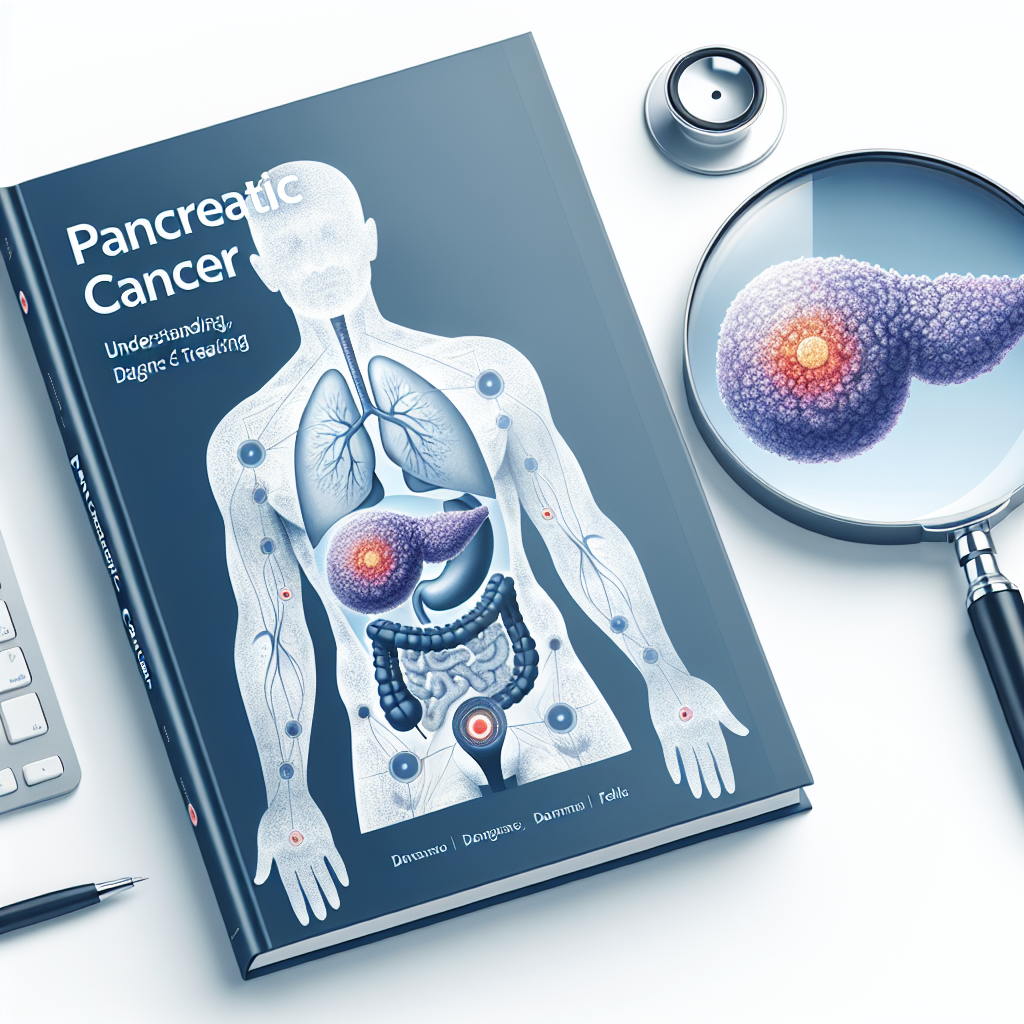Definition: What is Pancreatic Cancer?
The pancreas consists of two main cell types: exocrine cells, which produce digestive enzymes, and endocrine cells, which produce hormones like insulin and glucagon. The majority of pancreatic cancers, approximately 95%, originate from exocrine cells. These are called pancreatic adenocarcinomas. Neuroendocrine tumors, arising from endocrine cells, are rarer and generally evolve differently. A precise diagnosis determines the nature of the tumor.
Causes and Risk Factors for Pancreatic Cancer
Several factors increase the risk of developing pancreatic cancer. Understanding them helps in better targeting prevention.
- Smoking: This is one of the main modifiable risk factors. Smokers have twice the risk of contracting the disease compared to non-smokers.
- Obesity and Diet: A high body mass index (BMI) and a diet rich in saturated fats can increase the risk.
- Diabetes: People with type 2 diabetes, especially those who have had it for more than five years, have an increased risk. Conversely, new-onset diabetes in an elderly person can sometimes be an initial sign of the disease.
- Chronic Pancreatitis: Chronic inflammation of the pancreas increases long-term risk.
- Family History and Genetics: A family history of pancreatic cancer or certain hereditary genetic mutations (e.g., BRCA1/2 mutations, Lynch syndrome) increase predisposition.
- Age: Risk significantly increases with age; most diagnoses occur after age 60.
Symptoms and Signs of Pancreatic Cancer
Unfortunately, pancreatic cancer often does not cause specific symptoms in its early stages. These symptoms typically appear when the tumor grows or spreads.
- Abdominal or Back Pain: A dull ache, often radiating to the back, may indicate the presence of the tumor.
- Jaundice: If the tumor blocks the bile duct, the skin and eyes turn yellow.
- Unexplained Weight Loss: A significant and involuntary decrease in weight should alert you.
- Loss of Appetite and Nausea: Food may become difficult to tolerate.
- Changes in Stool: Pale, greasy, or floating stools suggest a problem with fat digestion.
- Intense Fatigue: Persistent tiredness often accompanies the disease process.
- Pruritus (Itching): Jaundice can cause intense itching.
- Onset of Diabetes: A new diagnosis of diabetes, especially in an elderly person without usual risk factors, can be a sign.
Diagnosis of Pancreatic Cancer: How is it Detected?
The diagnosis of pancreatic cancer relies on a combination of physical exams, imaging, and laboratory tests.
- Physical Examination and Medical History: The doctor assesses symptoms and reviews risk factors.
- Blood Tests: These look for tumor markers like CA 19-9, although it is not specific to pancreatic cancer. Liver or kidney tests can also reveal abnormalities.
- Medical Imaging:
- Abdominal Ultrasound: This is often the first examination; it allows visualization of the pancreas.
- CT Scan: A CT scan provides detailed images of the pancreas and surrounding organs, essential for diagnosis and staging.
- Magnetic Resonance Imaging (MRI) and Magnetic Resonance Cholangiopancreatography (MRCP): These exams provide complementary information, particularly on the biliary and pancreatic ducts.
- Endoscopic Ultrasound (EUS) with Biopsy: An endoscope equipped with an ultrasound probe helps visualize the pancreas up close and collect a tissue sample (biopsy) for microscopic examination. This confirms the diagnosis.
- Positron Emission Tomography (PET-Scan): This examination is used to detect potential metastases.
- Biopsy: Only a biopsy, the pathological examination of a tissue sample, confirms the cancer diagnosis. A pathologist examines the biopsy under a microscope.
Treatment and Management of Pancreatic Cancer
The treatment strategy depends on the cancer stage, the patient’s general health, and the tumor’s location.
- Surgery: If the tumor is localized and has not metastasized, surgery remains the primary treatment. The Whipple procedure is a complex surgery often used.
- Chemotherapy: It can be administered before surgery (neoadjuvant chemotherapy) to reduce tumor size, after surgery (adjuvant chemotherapy) to eliminate remaining cancer cells, or as the primary treatment for advanced cancers.
- Radiation Therapy: It uses high-energy X-rays to destroy cancer cells. Doctors sometimes combine it with chemotherapy.
- Targeted Therapies and Immunotherapy: These newer treatments target specific characteristics of cancer cells or stimulate the patient’s immune system. Their use depends on the presence of certain mutations or markers.
- Supportive Care (Palliative Care): These aim to relieve symptoms, improve quality of life, and support the patient and their family, regardless of the disease stage.
Recent Scientific Advances in Pancreatic Cancer (June 2025)
Research on pancreatic cancer is continually progressing, although no major revolutionary breakthrough has been published in the first half of 2025. Efforts are currently focused on several promising avenues. Scientists are developing new strategies for earlier diagnosis through innovative blood biomarkers. They are also exploring combinations of therapies targeting specific genetic mutations, including the integration of artificial intelligence to identify profiles of responding patients. Simultaneously, studies continue on immunotherapy, seeking to overcome the resistance of pancreatic tumors to these treatments and to better characterize the tumor microenvironment.
Prevention: Is it Possible to Reduce the Risk of Pancreatic Cancer?
Although there is no guaranteed prevention method, adopting a healthy lifestyle reduces certain risk factors for pancreatic cancer.
- Smoking Cessation: This is the most effective preventive measure.
- Maintaining a Healthy Weight: A balanced diet and regular physical activity help control weight.
- Balanced Diet: Opt for a diet rich in fruits, vegetables, and whole grains.
- Diabetes Management: Rigorous blood sugar control in diabetic individuals is important.
- Moderate Alcohol Consumption: Reduce alcohol consumption to decrease the risk of chronic pancreatitis.
Living with Pancreatic Cancer
Living with a diagnosis of pancreatic cancer presents many challenges. Holistic support is essential for patients and their loved ones.
- Nutritional Support: The pancreas plays a crucial role in digestion. A multidisciplinary team, including nutritionists, helps patients manage digestive problems and maintain optimal nutritional status.
- Pain Management: Pain is often part of the symptoms. Healthcare professionals offer pain management strategies, including medication and non-pharmacological techniques.
- Psychological Support: Patients and their families can benefit from psychological support, support groups, or individual therapy to cope with the emotional impact of the disease.
- Adapted Physical Activity: If possible, maintaining light physical activity can improve general well-being and reduce fatigue.
- Communication: Speak openly with your healthcare team about all your concerns.
Frequently Asked Questions (FAQ)
Is pancreatic cancer always fatal?
Pancreatic cancer is a serious disease, but new advances in diagnosis and treatment are constantly improving prospects. Early diagnosis offers better chances of success.
Is pancreatic cancer surgery risky?
Yes, pancreatic cancer surgery, such as the Whipple procedure, is a major and complex operation. It involves significant risks, but specialized surgical teams perform it successfully.
Is pancreatic cancer hereditary?
Only a small percentage of pancreatic cancers (approximately 5-10%) are hereditary and linked to specific genetic mutations. Most cases are sporadic, with no clear family history.
What are the latest treatments for pancreatic cancer?
The latest treatments include targeted therapies, immunotherapies for certain tumor subtypes, and optimization of chemotherapy and radiation therapy protocols. Research continues to explore new avenues.
Can pancreatic cancer be completely prevented?
Pancreatic cancer cannot be completely prevented. However, adopting a healthy lifestyle, including smoking cessation, maintaining a healthy weight, and a balanced diet, significantly reduces certain risk factors.
Additional resources
- To extend your knowledge, more articles are available here.
Confused by your blood test results?
Get instant clarity. AI DiagMe interprets your blood test results online in minutes. Our secure platform translates complex medical data into an easy-to-understand report. Take control of your health today. Visit aidiagme.com to get your personalized insights now.

